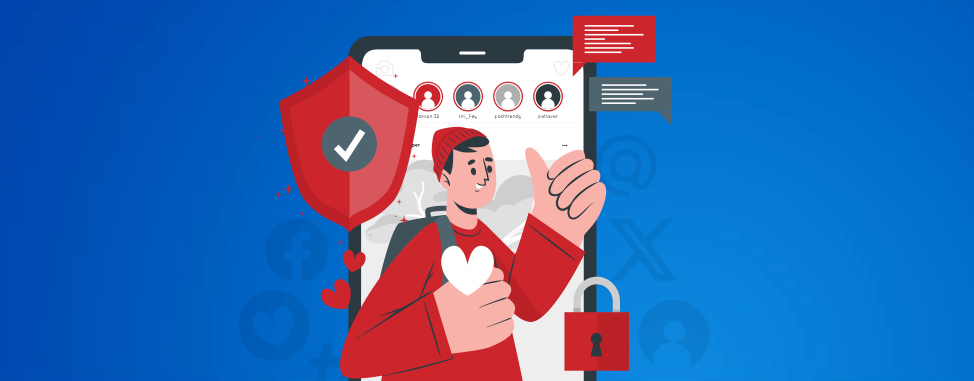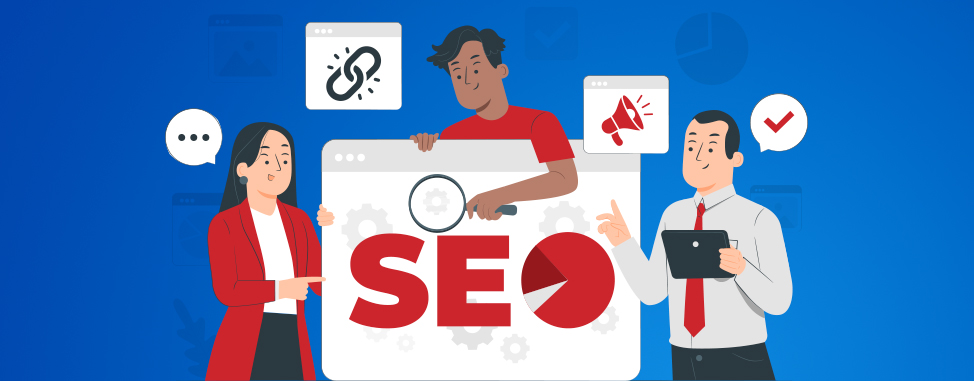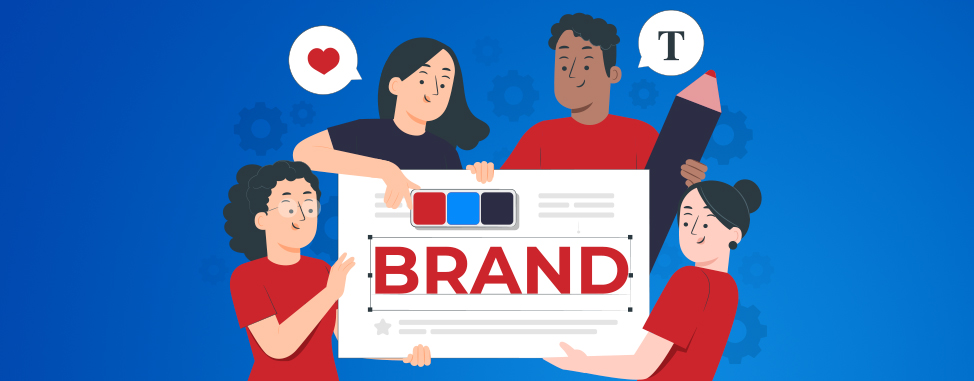
4 tips to stay safe on social media
With 4.7 billion users worldwide, social networks have become a part of our lives. However, while these platforms are a place for sharing photos, videos, opinions and views, they are also a target for cybercriminals. This is why everyone needs to take charge of their safety on social networks, whether it involves their personal or business accounts.
- Be security conscious on social networks
- Use strong passwords
- Enable two-factor authentication
- Optimize privacy and control settings
- Protect your personal information
- Use social networks responsibly
Be security conscious on social networks
In 2022, the Canadian Anti-Fraud Centre documented losses of $530 million, and contrary to what you might think, these security incidents targeted not only personal accounts, but also 21% of Canadian businesses. Parc Safari, for example, had its Facebook page hacked and plastered with adult content. Over the years, cybercriminals have perfected their methods, which include phishing, psychological hacking, privacy breaches and the use of malware.
To find out more about how to protect yourself against malware and phishing, click here.
Use strong passwords
It's important not to choose passwords that are too simple, such as the name of your pet or your children. They can be easily guessed by a hacker. Choose passphrases instead, such as "iMeatinGagreeNapplE14!". Not only are they more memorable, they're also more difficult to decipher.
To strengthen the security of your social networking and online accounts, you can also consider a unique password. In fact, one effective technique is to take a memorable phrase like "I hate accounting" and use the first letters of each word to form the basis of your password. In this example, that would be "iha". Then add numbers, special characters and capital letters to increase the complexity of your password.
Also, avoid using the same password for all your accounts, in case one of them is compromised. To help you keep track, use a password manager like LastPass or 1password.
Enable two-factor authentication
Most social networks now offer two-factor authentication, providing an extra level of security in the event your password is compromised. This method relies on elements that are unique to you:
- What you know: a PIN, a password or a security question.
- What you own: your phone. A random code can be sent to you by SMS or generated in the Google Authentificator app.
- Who you are: your fingerprints, your face, your eyes or your voice.
If your password is compromised, it's essential to quickly change the passwords on all your accounts. In addition, always lock your smartphone with a password to prevent unauthorized access to your data in the event of loss or theft.
Optimize privacy and control settings
You can customize the privacy settings on your social network accounts in order to better control who can see your information. Default settings often grant greater access than necessary. It's important to understand these settings and adjust them accordingly. Take Facebook, for example, where you can determine the following:
- Who can view your mentions, likes and comments
- Who can access your friends list
- Who can see your photos
- Etc.
There's also a lot of personal information about subscribers on social networks: the names of their friends and family members, how they spend their vacations and the content of their personal messages. It's important to understand how social networks use this information.
As a company, be sure to appoint trusted administrators to manage your business pages on social networks. This will avoid potential problems. Also, remember that you can limit and define access levels according to individual roles and responsibilities; this includes removing access when someone leaves the company or is no longer mandated to manage social network accounts.
Protect your personal information
Even with all these precautions, you can never be 100% sure about people’s identity online. Also, be very wary of requests from strangers – take the time to verify the authenticity of their accounts. If you’re a company, you should also check the authenticity of your subscribers' accounts.
It is essential never to disclose the following:
- Personal information such as your address, telephone number, e-mail address, date of birth, SIN, passport, place of work or the school your child attends.
- Banking and financial information such as the name of your banking institution, your financial situation, or your credit card number – even in private messaging.
- Geotagged photos, as they usually contain automatic location information. To protect your privacy, you have the choice of deleting the geolocation data before publishing the photo. Alternatively, you can decide to disable the geolocation function in your mobile device settings.
- Images revealing personal information, such as a photo with your address or the name of a street in the background, a license plate number, or details of your activities, such as a plane trip or vacation.
On the other hand, as a business, it's acceptable to share certain elements and geolocations to promote your activities. However, it's essential to carefully filter what you share. Make sure you don't reveal any information that could jeopardize your business, your employees or your assets.
Unfortunately, thousands of people have their accounts hacked every day. A recent example is François Lambert, a respected Canadian businessman. In July 2023, his Facebook page was hacked after a Zoom meeting with a bogus representative. The hackers took advantage of this interaction and used malware to steal his passwords. This resulted in financial losses as well as a loss of trust within his community.
Use social networks responsibly
In closing, it is essential to use social networks responsibly. Remain vigilant and update your privacy settings regularly, as platform policies evolve. Before clicking on a link, check in with yourself and check its source. And of course, don't hesitate to share this article with others who might benefit from it.
Finally, don't shy away from using social networks - they're powerful tools, when used responsibly.

Also on the WHC Blog

5 things you can do right now to improve your site's SEO
You've probably already heard of SEO, or search engine optimization. And you probably want your site to be more visible in search engines, too. But where do you start? What is SEO? SEO stands for Search Engine Optimization....
Read full article
Brand Image: 6 factors you can’t overlook
Have you ever looked at a logo and wondered why the company chose that? Most probably. Did you ever visit a social media page with incoherent images and colors? Definitely. Have you ever had a bad experience with a company?...
Read full article





